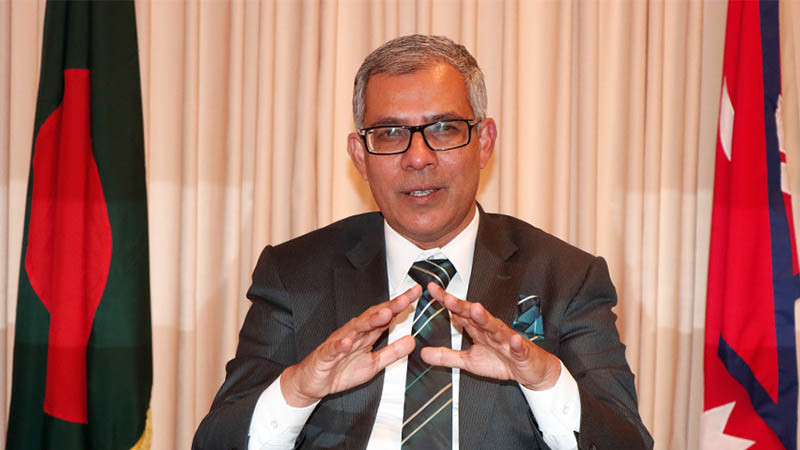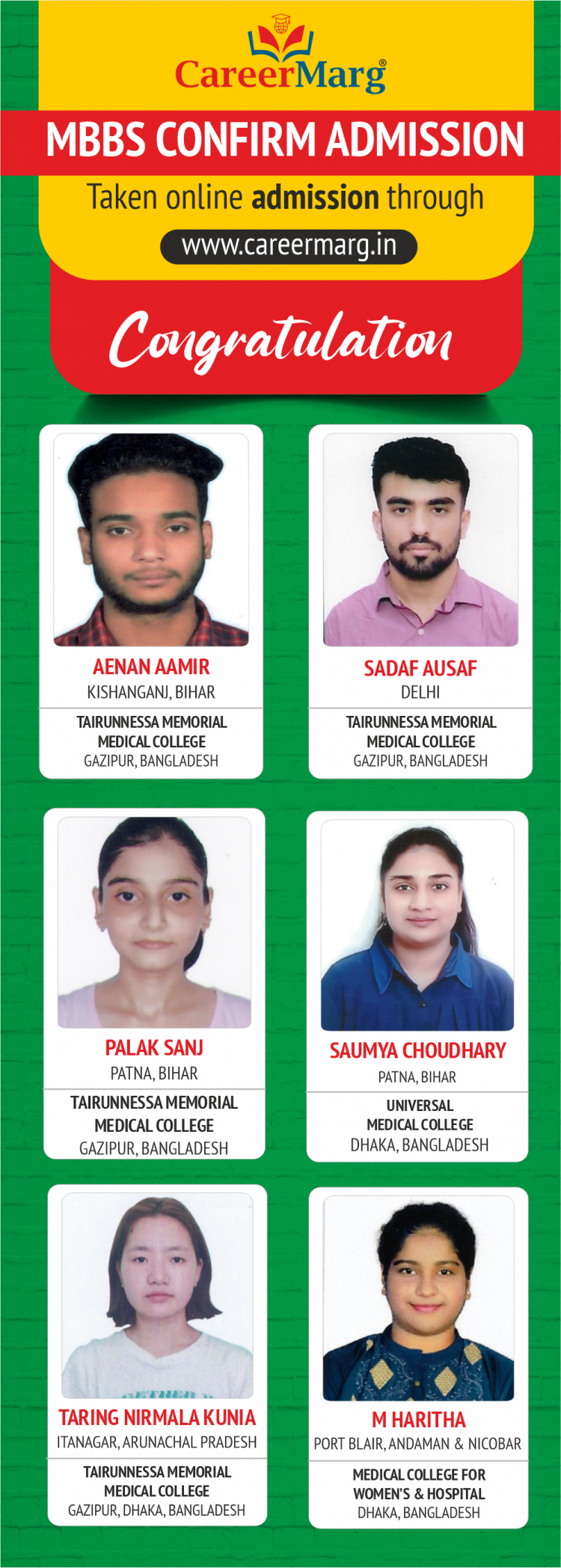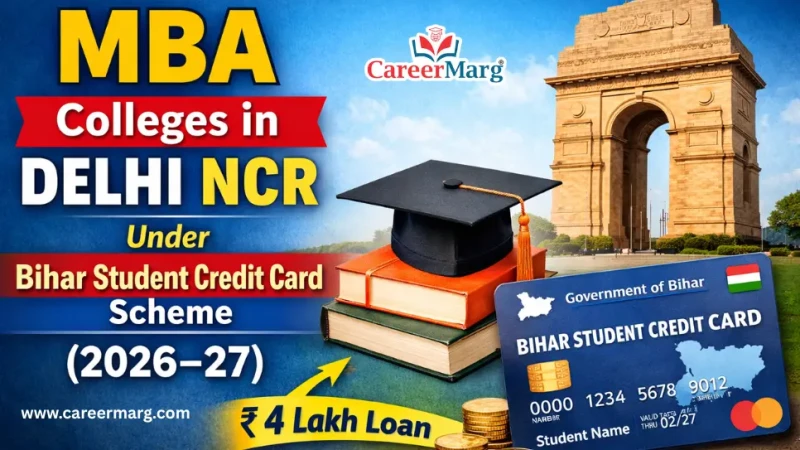India’s No. 1 Online Admission Portal Apply Now
India’s No. 1 Online Admission Portal Apply Now

Salahuddin Noman Chowdhury is the Ambassador of the People’s Republic of Bangladesh to Nepal. Before taking up this assignment, he held the position of Director General (Administration) at the Ministry of Foreign Affairs in Dhaka. In his diplomatic career of 23 years, he worked in various capacities at Bangladesh Missions in New Delhi, Islamabad, New York Consulate and New York Permanent Mission. In the headquarters, he held positions like Director General (External Affairs),Director (Economic Affairs),Director (South East Asia) and Deputy Chief of Protocol (Visit). Nepalkhabar recently talked to Salahuddin Noman Chowdhury on the Golden Jubilee of Nepal-Bangladesh ties. Excerpts:

I am very happy with the way the relationship has matured over the last five decades. It started in 1971 when the people of Nepal spontaneously supported the people of Bangladesh in the war of liberation, for which they remain ever grateful to the people of Nepal. During the course of time, we had an excellent relationship at the political level. As you know, President of Nepal Bidya Devi Bhandari visited Bangladesh to attend the birth centenary of the father of the nation, and also the celebration of 50th years of independence. Our Prime Minister and President had also visited Nepal several times during the last 10 years.
In the last five decades, we reached deals in areas of trade, investment, connectivity, cultural cooperation, water sector cooperation, power sector cooperation, and so on. But unfortunately, the trade volume has not flourished as expected. Now, the trade is about USD 100 to 20 million which is very small if we would compare it with other countries. We must realize that trade is for mutual benefits. Nepal produces many items which Bangladesh can buy at cheaper prices and the same is the case for Bangladesh. And realizing this, we are now trying to negotiate an agreement, a preferential trade agreement between the two countries and if that agreement materializes, our trade will increase significantly. On energy, we are currently negotiating the process to import 40 to 50 MW of electricity from Nepal to Bangladesh and our goal is to have a dedicated line from Nepal to Bangladesh through the Indian territory. On tourism, you know that Nepal is already one of the favourite destinations of Bangladeshi tourists and recently, mountain tourism is also increasing as we observe the number of mountain tourists that come to Nepal, and this will continue to increase. But we are also looking forward to having more Nepali tourists to Bangladesh to see the sea beaches, mangrove forests, and tea gardens in Bangladesh.
Education sector cooperation is one of the main pillars of our relationship. I am very happy to see that a large number of Nepali students are studying in Bangladesh at medical colleges, engineering universities and other universities. I am happy to meet the reputed medical doctors in Nepal who have studied in Bangladesh. So this has the potential to increase in the future. Currently, we are providing 22 scholarships at the government medical colleges and many private universities also provide scholarships to Nepali students. Many other students also go for their education in different universities on self-finance basis, but there is a scope to expand the relationship by bringing more Bangladeshi students to Nepal as well. The Nepali education system is very good, and the quality of education is very high. If we could get exposure to a Nepali education system that would be beneficial for Bangladesh as well. So, it can start with the offering of some scholarships to Bangladeshi students by Nepali universities or colleges.
In the last few decades, we are facing multiple crises. Climate change was already there. Then the pandemic started, then the financial crisis, and now the war. And there are predictions that there will be food shortage or fertilizer crises in the future. So, in this situation, I think that Bangladesh and Nepal and countries like ours have no option but to work together in multilateral and regional platforms. I think that both countries should work very hard to have a mechanism for cooperation to face this crisis. Unfortunately, they have not been able to make the best use of the most potential platforms. As of now for apolitical divide, my personal view is that we have to delink politics from trade or investment for their mutual benefits.
By 2026, which is only four years away, we will be graduating from the LDC group to the middle-income group. But with that graduation, we will have multiple challenges. We will not have the international support measures that we are having right now, and there will be no duty-free quota-free access, no soft loans, no technological support, or no waiver of intellectual property rights. So, there will be some difficulties to have access to our products in the international market. So, what we need to do is to have a mechanism to create interdependencies to absorb the shocks that we would be facing at that time. I think that we have to make our products competitive by using technology and also using innovative approaches in production. We have to increase our productivity, mobilize their domestic resources and also have more investment in the education and health sector and particularly in skill development. For example, Nepal is producing electricity in abundance, Nepal can use electricity for increasing the productivity of its products making them more viable, and more cost-effective.
It is absolutely feasible, and I can say this without being an expert. The only constraint is political will. We have to realise that the import and export of electricity will be for our mutual benefit.
I think that India will, of course, support this because we have understood that India wants a robust functional and sustainable connectivity framework in the entire sub-region. So, there is no reason for India to oppose this. I think that India will extend their support to these connectivity issues. In addition, I would like to say that there are some people who are very sceptical about security issues. I think that there is no sensitivity, in this case, we do not need to be worried. There are some people who may raise some irrational or unnecessary questions about the security issues, but there is no security issue as such. It is a wire which will go underground or over the ground. So, our responsibility will be to dispel any worries from any quarters about security.
We will always welcome transit of goods; Nepali goods using Bangladeshi territory and Bangladeshi ports, which we have announced already. It is a part of our commitment to regional cooperation and also our abiding friendship with the people of Nepal. On our part, we have already built all the infrastructure and we are ready to offer those facilities to Nepal. I think that if this route can be used, the exports and imports of Nepali products will be much cheaper and cost-effective. And that will have an impact on Nepal’s international trade and economy.
Credit- NepalKhabar.com
No Comments Found

What is Bihar Student Credit Card Scheme (BSCC)?The Bihar Student Credit Card Scheme is a flagship initiative of the Government of Bihar under the 7 Nishchay Yojana, implemented through DRCC (District Registration & Counselling Centres).Key Highlights of BSCCLoan amount....

NEET UG 2026 Syllabus: Official Confirmation by NTAAs per NTA’s official position, the NEET UG 2026 syllabus covers the following subjects strictly from NCERT textbooks:📚 Subjects CoveredPhysicsChemistryBiology (Botany & Zoology)📌 Important Note for Students: Preparing beyond NCERT textbooks without strong....

The Bihar Student Credit Card Scheme (BSCC) is one of the most important Bihar government schemes for students after 12th. It provides an education loan of up to ₹4 lakh to help students pursue engineering, diploma, B.Tech, MBBS, nursing, BBA....

Dreaming of becoming a doctor but tired with cut-throat competition, sky high fees of private colleges and limited government seats then MBBS from Bangladesh can be your escape.Every year thousands of Indian medical aspirants are turning to MBBS from....

Bangladesh has become one of the most affordable and NMC-approved destinations for Indian students seeking quality medical education abroad. With low tuition fees, a similar curriculum to India, and a 5-year English-medium program, studying MBBS in Bangladesh is now the....